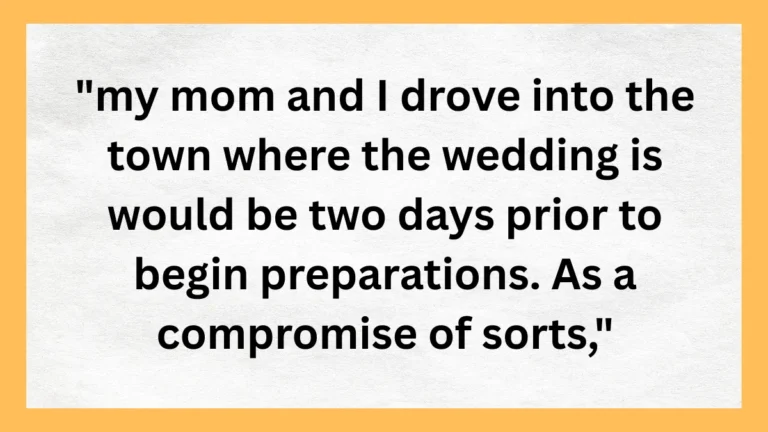She Mocked My Weight—So I Said ‘I Love Being Skinny.’ Was I Out of Line?
Figuring out exactly why Amanda was at the party might not even matter. What stands out is the moment that unfolded during a birthday celebration for a mutual friend—someone the original poster (OP) says carried emotional baggage from a recently ended relationship. At past gatherings, Amanda, who is plus-sized, had a habit of making sly, cutting remarks about OP’s slender figure.
This time was no different. When Amanda looked at OP and said, “God, you’re so thin,” OP, recalling advice from their mother, smiled and replied, “Well, thank you. I love being skinny.” That one-liner—confident but sharp—set off an unexpected storm. Amanda responded by slapping OP across the face and storming out, leaving the party in a heavy, awkward silence.
Was OP being rude? Or just standing their ground? Amanda had a pattern of making unsolicited comments about OP’s body, but OP’s reply didn’t insult Amanda directly—it simply flipped the narrative. Still, the reaction from other guests revealed just how emotionally charged and complex conversations around body image and self-worth can be, especially in today’s society.
No matter the intent—praise or criticism—commenting on someone else’s body is never appropriate

Unfortunately, this woman missed the memo—and ended up causing a major scene at the birthday party.
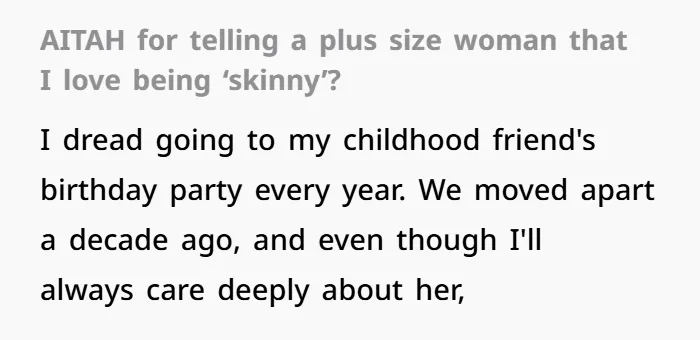
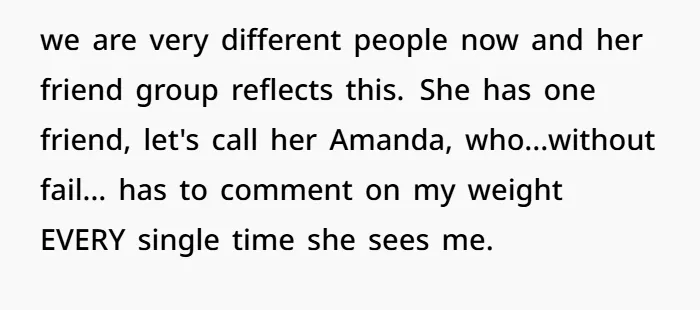
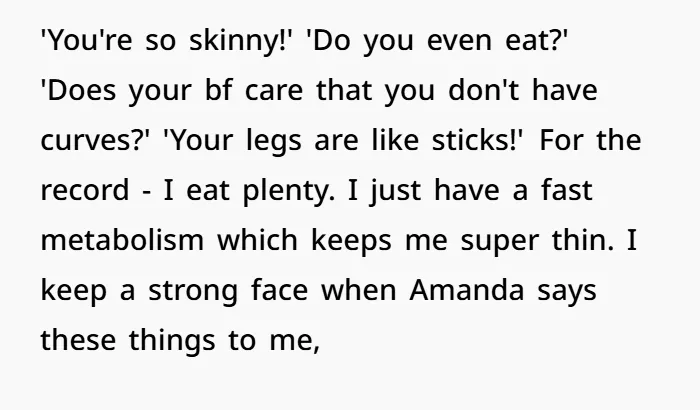
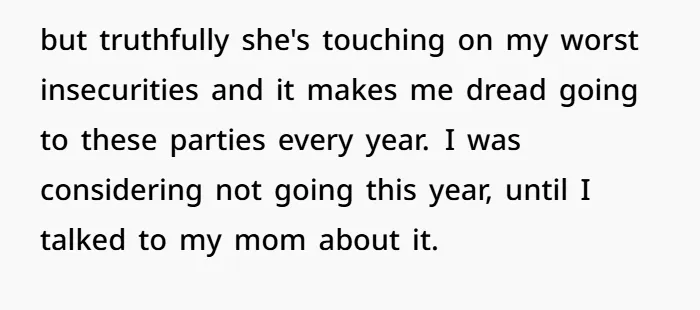
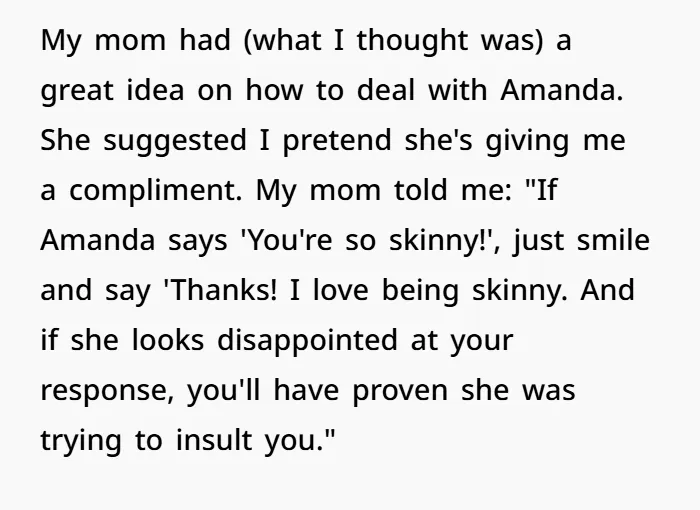
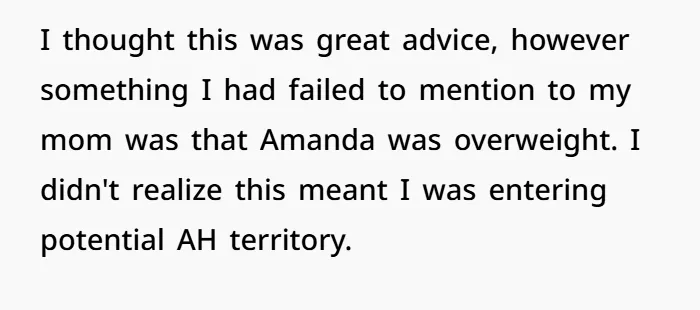
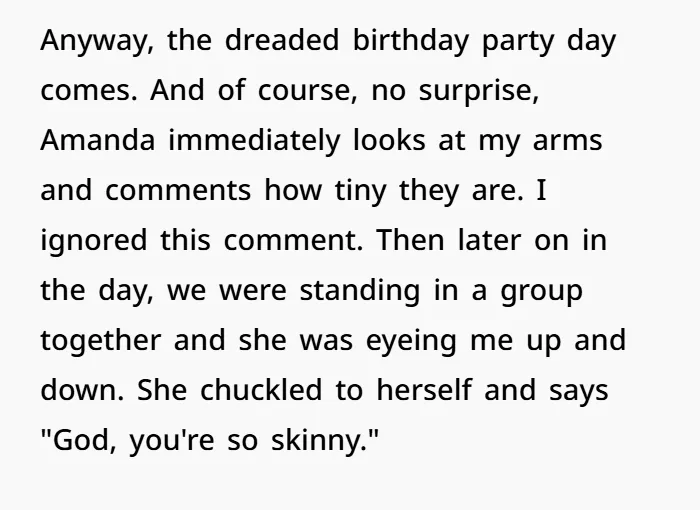
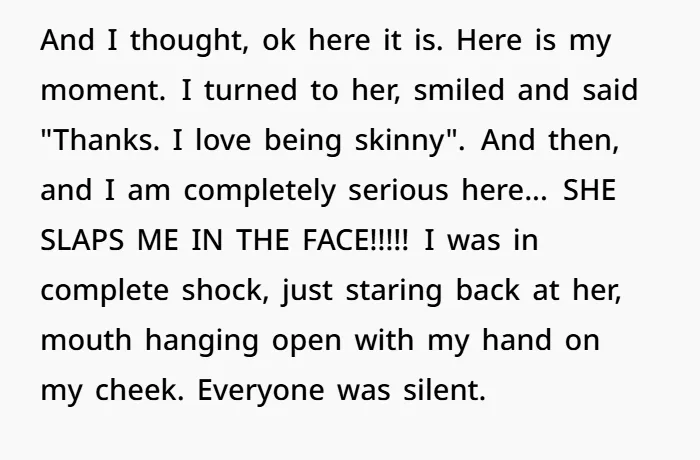

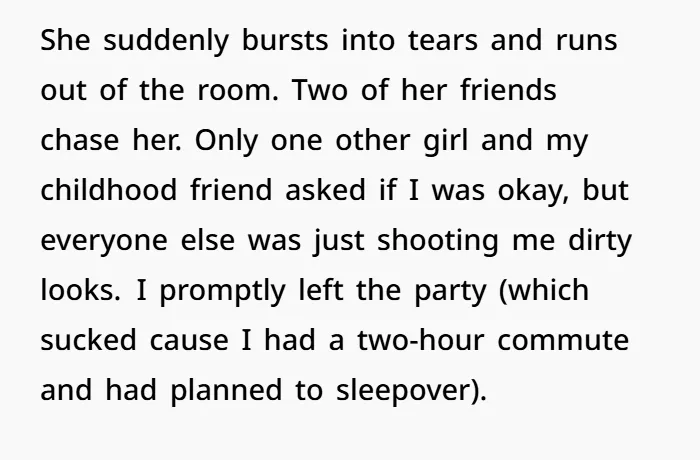
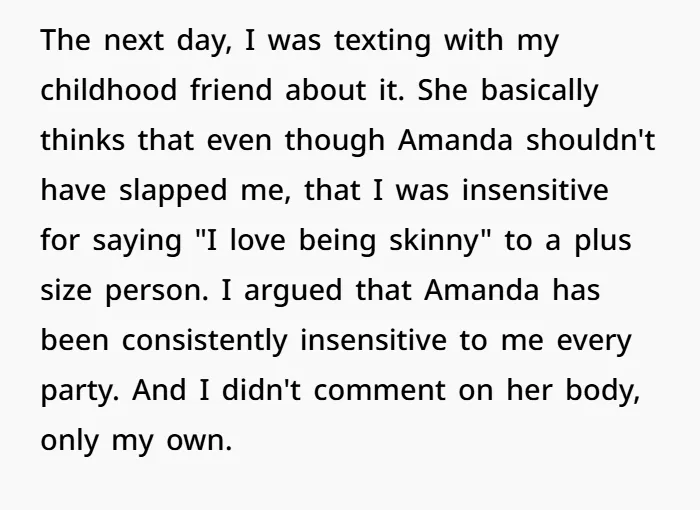
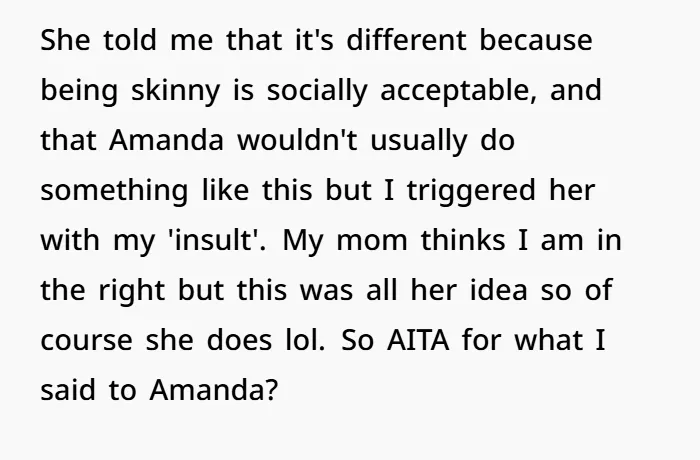
Self-Image, Social Tensions, and Respecting Boundaries
The Complexity of Body Image and Weight-Based Comments
Body image is a deeply personal and emotionally charged topic. Conversations around weight—whether directed at someone who’s thin or plus-sized—are rarely simple. Remarks about body size can tap into deep insecurities, regardless of the person’s shape. In fact, calling someone “too thin,” as Amanda did to OP, can be just as harmful as fat-shaming. A recent study published in the Journal of Obesity confirmed that weight-related teasing causes psychological harm, no matter the body type.

OP’s response wasn’t hostile—but it struck a nerve. Amanda’s reaction, though extreme, was likely rooted in internalized weight bias, a psychological struggle many people in larger bodies experience. When size becomes the focal point of a social moment, it can amplify feelings of inadequacy. Still, that doesn’t justify Amanda’s physical outburst—crossing that boundary was unacceptable by any standard.
How Society Frames Thinness vs. Plus-Size Bodies
For many in bigger bodies, hearing “skinny is beautiful” reinforces a long-standing cultural bias. For decades, the fashion industry and mainstream media have elevated thinness as the ideal while shaming or excluding plus-size individuals. The body positivity movement has fought to change that narrative, encouraging acceptance of all body types. Amanda’s reaction may reflect a struggle to reconcile this shifting landscape—where being thin is still often seen as the societal default or standard of beauty.
But highlighting one form of body shaming while dismissing another goes against the core value of body positivity: inclusion. Amanda’s slap wasn’t just a moment of anger—it erased OP’s hurt feelings and dismissed the underlying double standard. In these situations, mutual respect and clear boundaries are essential. Comments about anyone’s body—no matter how subtle—require consent, empathy, and sensitivity.
Navigating Tension in Social Circles
In any social setting, finding balance is key to managing conflict. While OP’s response may have been intended as self-defense, its sharp delivery likely escalated an already tense situation. That said, Amanda’s repeated comments about OP’s weight had crossed a line long before this party—making the issue impossible to ignore.
Still, there were other ways OP could have handled the moment. A more neutral but assertive reply like, “I’d really prefer if we didn’t comment on each other’s bodies,” might have diffused the tension without igniting confrontation. It acknowledges the boundary while keeping the tone calm and respectful.

However, Amanda’s response—slapping OP—went far beyond acceptable behavior. Legally and ethically, it’s assault. No matter how emotionally charged a moment may be, resorting to physical violence isn’t just inappropriate—it’s unjustifiable. Social boundaries matter, and Amanda didn’t just test them—she bulldozed right past them, turning a verbal exchange into a serious breach of personal respect.



